Discover Vyapaar
Vyapaar

45 Episodes
Reverse
In this episode, I invited Shubham Singh – founder of Craste, a company creating value added products like packing materials, panel boards and paper from agricultural residue with the vision to create wealth from waste.
India generates more than 500 MILLION tonnes of agricultural residue every year. We are all aware of the incredible amount of pollution caused by stubble burning
because farmers don’t know what to do with so much waste.
Shubham saw this problem as an opportunity. With an abundance of agricultural residue – you could build systems to derive value added products from them. After 5 years of intensive R&D and a lot of patents filed, Craste is absolutely crushing it in this sector.
Value added products from agricultural residue, at scale, across various rural areas in India – could transform the country. And we should do whatever we can to support them!
I learnt a lot from Shubham in this podcast and we spoke about a range of topics like:
(00:00): Introduction
(02:15): How did Shubham first get a taste of entrepreneurship + building Gramiksha
(06:40): Moving back to academics <> Imperial College of London – researching about carbon capture.
(10:48): Meeting the QUEEN OF ENGLAND.
(14:17): Getting into a entrepreneurship fellowship called ‘Waste to Value’.
(18:35): The problem of agricultural residue + creating products from this waste.
(23:00): THE JOURNEY FROM IDEA > R&D > EXECUTION.
(31:57): Making money from waste > entering the commercializing phase.
(34:25): THE PROCESS: converting agricultural residue into value added products.
(38:37): How is competition in this space? Can Craste compete with plastic packaging companies?
(43:00): How do you apply to Government fellowship programs?
(46:20): How does the future of Craste look like?
(49:00): RAPID FIRE QUESTIONS
You can reach out to Shubham at shubham@craste.co to get your hands on the 100+ business ideas that he has!
You can learn about government fellowships at Venture Center's website here
You can learn about what Craste is building here
Logistics is an unorganized industry. Not a lot has changed in a very long time, and this industry is ripe for disruption.One of the big problems in India (and globally), is the transport of empty containers. This is what happens:(1) Once a container lands in India, it goes to the Importer's premises by road and it is unloaded.(2) Once unloaded, the empty container goes back to a depot, where it is inspected and then it is re-used for Export.(3) Once again, post inspection - the empty container travel by road to the Exporter's premises.This delays exports. Stretches working capital for shipping lines. No one wins. And this is precisely the problem that MatchLog is trying to solve. It tracks empty containers and links importers & exporters. They inspect the empty containers so that it doesn't have to travel all the way back to depots.MatchLog works with various stakeholders in the Logistics industry and through their platform have been able to drive efficiencies for all players involved.I had a blast picking Harsh's brain about all things Logistics and how they built MatchLog through several iterations. We spoke on various topics like:(01:55): Introduction to Harsh Gupta - talking about college biz, family biz, a few job stints before starting MatchLog.(11:44): Making a transition from operating a family business to joining Grab + learning how to integrate tech into logistics + ultimately starting MatchLog.(16:07): ITERATIONS - talking about various changes in the b-model & a crash course in container logistics(23:06): ELEVATOR PITCH FOR MATCHLOG(26:09): How much time is MatchLog saving?(27:34): How does International Logistics work? Is empty container shipment a global issue?(30:46): Who are the various stakeholders involved in Logistics?(32:19): Talking about carbon emissions, competition, awareness required, dealing with business owners(37:07): Current sales strategy & pushing technology into Logistics(41:17): Recruitment @ MatchLog - BIG opportunity(42:29): What’s next for MatchLog? Talking scale and expanding to new geographies.(45:42): How difficult is it to iterate? What goes in the mind of a founder? How do you deal with uncertainty?(48:39): CORE TEAM @ MATCHLOG(51:27): Rapid Fire QsYou can check out their website here
When I think about diamonds, a few words come in my mind instantly. Shiny, glamorous, precious, rare and expensive.Buying diamond jewellery used to be a luxury for most people in India. People would save for years and buy on special occasions like family weddings, anniversaries, birthdays & festivals.But, times have changed. And diamond trade is going through a phase of evolution. A wave of disruption caused by lab grown diamonds (LGDs).LGDs are an exact replica of mined diamonds with a contrasting difference - their cost. Cost of LGDs are lower by 80-95% compared to mined diamonds.Riding this wave, is Solitario - a luxury lab grown diamond brand with presence in India, Dubai, Malaysia among others.The brand promotes sustainable practices with the aim of making luxury diamonds more accessible to a wider audience.This podcast was a crash course for me on LGDs and I had an absolute blast hosting Anurag. We spoke on a range of topics like:(3:13): TRICKS OF THE TRADE - How does a mall work? (8:03): The Engineering DNA - how can do they everything?(14:06): Joining Solitario + creating the offline launch strategy(20:05): GOING GLOBAL - launch in Dubai @ Burj Khalifa & other countries + how mall zoning helps in building an aspirational brand.(27:16): A crash course in lab grown diamonds [CVD / HPHT](33:50): Potential of the LGD Market(36:03): Quick take on Distribution / Marketing strategies - Target audience, Exclusive Brand Outlets (EBOs), Multi Brand Outlets (MBOs), Indian customer profile, Global customers(40:11): Current challenges for growth(42:52): Leadership Team @ Solitario (Ricky + Vivek Oberoi)(46:17): RAPID FIRE QsYou can check out Solitario's luxury collection here
In 1978, Nand Kishore Chaudhary (NKC) got a job offer from a Government bank and the chance to move from Churu to Jaipur -- something most people could only dream of back in the day.But, he declined that offer. He saw an opportunity in the carpets business which was a 100% export market and was growing steadily. He also saw this as an opportunity to impact lives and connect with people.So, he took a leap of faith. He took a loan of INR 5000 from his father. Bought a bicycle. Two looms. And started working with 9 artisans in Churu.And that's how Jaipur Rugs was born.Fast forward to today, he has created a sprawling empire with their carpets being exported to 60 different countries. They have trained >40,000 artisans and run various social initiatives via Jaipur Rugs Foundation.NKC & Jaipur Rugs are a shining example of how a business can create lasting impact in the lives of people.I learnt a lot while speaking to NKC and we spoke about a range of topics like:(02:03): How NKC started his entrepreneurial journey with INR 5,000(08:14): Inception of JaipurRugs — navigating early challenges of doing biz in the 1980s(14:49): What goes into making an exquisite handcrafted rug? Wool > Yarn > Carpet(20:31): How long does it take to make one carpet?(22:02): Challenges in the rug making biz - machine made carpets + reduction of artisans(25:28): BIG OPPORTUNITY — Evolution of luxury rugs market in India(28:17): Jaipur Rugs Foundation — changing lives of artisans(32:12): BUILDING LEGACY — Integrating children into the family biz(36:33): New initiatives @ JaipurRugs - converting artisans to artists(39:41): RAPID FIRE QsYou can check out their website @ JaipurRugs
In this episode, I invited Jigar Mehta - founder of Honey Twigs, a company that is reshaping how we think and consume honey.
Honey has a lot of nutrients. Rich in anti-oxidants. Better for blood sugar. Helps in healing.
Honey is a segment which has not been disrupted for a VERY long time. The first thought that I get when I think about honey, is that it is a medicine. We're not really motivated to consume it daily.
With Honey Twigs - Jigar is on a mission to change that perception. They make aesthetic looking 'twigs' which are mess free, naturally sourced and make consuming honey a lot of fun!
I had a lot of fun talking to Jigar on this episode, and it was like a crash course into the business of honey. We spoke about:
(01:58) How did Jigar get a taste of entrepreneurship & the idea to enter the world of honey?
(06:52) The 0 to 1 journey of HoneyTwigs — creating innovative honey variants
(14:42) Strategy to create mass market flavors for consumers
(18:42) Disrupting the way people consumed honey
(27:00) THE SHARK TANK EFFECT
(32:22) Competition from new players?
(34:13) Crystallisation = Pure Honey
(39:12) Mythbusters on Honey
(46:38) Key takeaways running HT
(48:12) RAPID FIRE Qs
In this episode, I invited Krishi Fagwani — founder of Thrive, a company in the food aggregation space.
This space is dominated by Zomato + Swiggy, but suffers from a few issues like high restaurant commissions, low customer rewards etc.
Thrive wants to solve that. They are a restaurant first platform offering low commissions, rewarding customers for their activity with cashbacks & offering various loyalty programs.
It is a platform where restaurants & customers can thrive, together!
I had a lot of fun talking to Krishi, and it was like a crash course in the food biz. We spoke about a range of topics like:
(00:00): Introduction
(01:42): What was it about the food industry that appealed to Krishi + how he got started
(07:09): First time entrepreneurs + executing the business plan + navigating through various iterations
(10:45): Competing w/ the BIG FISHES (Zomato & Swiggy)
(18:34): Leveraging existing business partners during COVID for growth
(20:32): Journey through the years + customer traction
(28:47): Building the ultimate platform for foodies - digitalising the word of mouth
(35:36): HYPOTHETICAL Q - would Krishi sell Thrive to Zomato?
(41:46): BLOCKER FOR FUTURE GROWTH?
(45:02): Why Krishi is not getting into QCom?
(47:36): 10Y in the industry - learnings and key takeaways
(51:56): RAPID FIRE Qs!
In this episode, I invited Garvita Mamodiya - founder of Teela, a company which is curating unique experiences with its [aesthetic looking] glamping resorts.
With the fast paced work culture that we're heading towards, people are not getting an opportunity to truly connect with nature. To fully detox. To engage in adventurous activities.
Enter Glamping. A phenomenon which is emerging in India which is a mixing luxurious accommodation with camping.
Teela is providing unique experiences for it's customers allowing them to truly connect with their surroundings offering activities include ATV riding, paintball, private dining, nature walk etc.
I had a blast talking to Garvita and learnt a LOT about glamping and the future of hospitality in this episode. We spoke about a range of topics like:
(00:00) – Introduction
(04:30) – When did Garvita first get a taste for entrepreneurship + talking about her inclination towards the hospitality industry.
(07:45) – Transitioning from building a normal resort to launching a Glamping Resort.
(09:57) – What is GLAMPING?
(14:56) – What are the various adventures you can indulge in @ Teela?
(16:29) – SECRETSAUCE: Constant iterations > Learning from customer feedback > curating new experiences
(20:18) – Talking about traction, marketing strategies, harnessing the power of Instagram and exploring new geographies.
(27:15) – Challenges & learnings from building a hospitality company.
(33:07) – Talking about the vibrant team @ Teela
(35:18) – What is Garvita building next? What is keeping her excited about the future?
(43:10) – RAPID FIRE Qs
Check out Teela's website here
In this episode, I invited Bhuman Dani – founder of WickedGud, a company promoting guilt free eating with the mission of un-junking one kitchen at a time.
Did you know that the noodles you eat are already deep fried? The pasta that you eat has a lot of refined flour? If you’re consuming these packaged foods on a daily basis, it’s not healthy – especially if it is being consumed by kids.
How do you solve this problem? You eliminate the deep fry process. You eliminate the refined flour. At the same time, try to keep the taste and texture. That’s exactly what WickedGud is trying to build.
With health icons like Shilpa Shetty representing the brand and with grabbing eye balls on Shark Tank, WickedGud has positioned itself perfectly to conquer the future of food.
I had a blast talking to Bhuman and we spoke about a range of topics like:
(00:00): Introduction
(01:11): How did Bhuman start his entrepreneurial journey? Was it in his blood?
(04:48): Is there a secret to crack BCG interviews?
(05:55): What tilted Bhuman to exit his first venture and start another venture towards guilt free eating?
(12:28): ELEVATOR PITCH
(15:57): How were the early days of WickedGud? Why did Bhuman start with Pasta? What were the methodologies adopted to go from idea to launch?
(21:46): NEW PRODUCT LAUNCHES + using different technologies to drastically reduce saturated fats.
(33:08): Talking about traction, distribution strategies, geographies that are working for the brand and customer feedback.
(42:29): How was the experience of working with Shilpa Shetty to represent WickedGud?
(45:11): THE SHARK TANK EXPERIENCE
(49:17): What is the long term vision for WickedGud? Any new product launches in the pipeline?
(50:44): RAPID FIRE Qs
In this episode, I invited Bhagyashree Bhansali – founder of The Disposal Company, an organization that is helping brands to achieve plastic + carbon neutrality.
Imagine that you’re a brand that is using 100KG of plastic in your packaging, production etc. and you want to be able to offset your plastic footprint without setting your own recycling plant. You reach out to the folks at The Disposal Company.
They understand your plastic footprint. They coordinate with recyclers to ensure 100KG of similar plastic get recycled. And they sell you the plastic credits. It’s a win – win – win.
I had an amazing time talking to Bhagyashree & learnt a TON of stuff about plastic / carbon credits and how the waste management industry functions in general.
We spoke about a range of topics like:
(00:00): Introduction
(01:44): A brief dive into the psyche of Bhagyashree and her experiences
(05:45): How can a normal Indian citizen get into politics / activism / social service?
(10:00): When did Bhagyashree get exposure + building knowledge base about the waste management sector?
(17:00): BUILDING A BUSINESS: How did Bhagyashree transition into building a business around waste management
(19:56): Can Microplastics cause cancer?
(20:55): Getting into the business of plastic credits + starting THE DISPOSAL COMPANY
(22:54): Talking about the initial days + building traction
(26:10): How is the industry shaping up for the plastic credits market?
(29:42): ELEVATOR PITCH FOR THE DISPOSAL COMPANY + Understanding the B-model
(37:44): THE SYSTEM: Buying & selling of plastic and carbon credits
(42:46): Growth plan for the future
(44:18): How are environmental regulations shaping up for plastic / carbon neutrality?
(50:47): Collaborating with The Disposal Company
(52:23): What can normal Indian citizens do avoid excessive waste and avoid micro-plastics?
(58:39): RAPID FIRE Qs
If you’re a brand owner looking to offset your plastic / carbon footprint – The Disposal Company can help you. You can check out their website or reach out to the founder at bhagyashree@thedisposalcompany.com
In this episode, I invited Preksha Chopra - founder of Welme, a health and wellness company which has created a period pain relief device.
Welme, uses TENS technology to reduce period pain in women. It's clinically tested. Has no side effects. It's portable. It's sleek. You can wear it even while you work. Or while you party. No anti-biotics required.
I learnt a TON in this episode about period pain and asked a LOT of questions (some stupid ones too :P) and Preksha was kind enough to answer all of them which such calmness. She knows her stuff! We covered a range of topics like:
(00:00): Introduction
(01:30): What is Preksha building with Welme and talking about the science behind the tech
(04:20): The foundational events that led to the IDEA for Welme
(10:51): How does the Product work?
(13:08): How challenging was it to convince people to use a tech instrument to treat period pain? How was the initial response to Welme?
(17:15): Business in the blood?
(18:38): Talking about the MOAT and how Welme can stay one step ahead of the competition
(19:50): Why is talking about Periods still considered a Taboo?
(22:18): HYPOTHETHICAL Q: What would Preksha do if a big shot Pharma company approached her to buy Welme?
(25:35): What are the new products in the pipeline?
(27:10): Key learnings while building a business in the wellness space in India
(31:38): Talking about manufacturing, customer traction, marketing, product design and
distribution
(40:52): THE FUTURE OF WELME
(42:44): Some FAQs around period pain
(50:35): What’s the story behind the Logo and the name?
(53:00): LUCK VS HARDWORK
If you go through severe period pain, why not try out Welme? You can check out their website for exciting new stuff in this space!
I enjoyed the conversation with Sharan so much that we created content equal to two episode. This is the second part where we spoke about the following:
(00:13): What does it take to build a company in India? Talking about challenges + key learnings
(06:04): How to get your product placed in supermarkets and offline distribution channels?
(08:49): How does the FMCG business work?
(11:58): BOOTSTRAPPING VS FUNDRAISING
(20:07): How do you compete with a player who is funded when you’re bootstrapped?
(24:15): How is it like having a sibling as a Co-Founder? How do the dynamics play out while running the business?
(28:12): Creating a logo to create engagement + capture attention
(31:52): Story behind the name ‘Sober & Co’
(34:53): Success Factor: LUCK VS HARDWORK
In this episode, I invited Sharan Kripalani - founder of Sober & Co, a ready to drink premium handcrafted lifestyle beverage company.
They use exotic ingredients to curate innovative flavors, and looking at their aesthetic bottles will make you want to partyyyy! Staying sober, would be a challenge ;)
I had a lot of fun talking to Sharan about how things work in the FMCG beverage market and learnt a ton of stuff in this conversation. We covered a range of topics like:
(00:00): Introduction
(04:16): Sober & Co – a brief insight into this exciting beverage brand
(08:15): The FMCG beverage market – is it ripe for disruption?
(11:21): How did Sharan’s entrepreneurial journey start?
(14:30): Talking about the initial days @ Sober & Co
(17:27): TIMELINE – converting an idea into a product on the shelf
(25:26): THE ELEVATOR PITCH FOR SOBER & CO
(28:50): Sugar, sugar, sugar – why it is important to create a zero sugar beverage brand
(33:31): Talking about customer traction and product adoption
(36:31): WHAT’S THE BEST SELLING FLAVOR?
(40:12): What is the best performing geographical location in India for their beverages? [I thought it was going to be Delhi!]
(44:04): Who is the typical customer and which distribution channel is working really well?
(47:01): THE PIPELINE – new flavor launches and exploring new geographies
What are you waiting for? Order your first bottle from Sober & Co's website. You can also find them on Amazon or Bigbasket.
In this episode, I invited Harshit Puram - founder of Oknomodhomes, a company in the business of making portable sustainable homes and delivering it across India in just 90 DAYS!
Real estate construction takes a lot of time [and money]. You need to reach out to the builders, plumbers, electricians, designers & a whole lot of other people. It's like a side job.
Oknomodhomes takes care of this entire process and makes it extremely hassle free. Plus, they build houses from sustainable building materials. Their houses are more durable. Have a positive carbon footprint. Look more aesthetic. Cost you similar to what it would cost you to make a normal concrete house. The houses are portable. And the entire house is built and assembled at lightning speed.
This is how the future of construction looks like! I had a blast talking to Harshit about the various things they're doing with Oknomodhomes and we spoke about a range of topics like:
(00:00): Introduction
(02:25): A brief glimpse into Oknomodhomes
(04:00): How are they building & shipping homes in 90 DAYS?!
(06:28): Life before Oknomodhomes: what set the foundational idea for Harshit & Parikshit to start a company in the real estate biz?
(11:39): TIMELINE: Idea generation – First Prototype – Go Live
(15:07): BRASS TACKS: Talking about traction, target audience, pricing comparisons & growth of the business
(22:29): WHY ARE WE STILL BUILDING HOUSES WITH CEMENT?
(26:39): MOAT: What makes houses built by Okno more superior compared to normal houses?
(36:44): COMPETITION: Are there any new players in the sustainable portable real estate market?
(40:32): How does the whole process of buying a house from Okno look like for a consumer?
(42:45): How BIG is this market opportunity?
(50:24): What is the story behind the name?
Check out what Harshit & Parikshit are building with Oknomodhomes and take a look at their aesthetically built homes
In this episode, I invited Anish Malpani - Founder of Ashaya, a non profit organization that functions with a simple vision : 'To recycle the worst kind of plastic waste while empowering waste pickers'.
Multi-layered plastics (also known as MLP) is one of the hardest plastics to recycle. It continues to overburden our landfills. Destroys marine life when discarded in the oceans. Recycling MLP is tough, so much so that no one wants to invest their time & money to do it.
Anish - saw that as an opportunity. An opportunity to solve a really difficult problem. Ashaya set up a lab in Pune and through a LOT (really a lot!) of research and continuous testing + iterations, they've developed the technology to recycle MLP.
I had an amazing time talking to Anish about his journey & about the impact Ashaya is creating, all the while going through an introspection myself.
We spoke about a range of topics on this episode like:
(00:00): Making sunglasses from a packet of chips – LIKE WHAAAT?
(02:21): Why are other people NOT recycling multi-layered plastics (MLP)? What’s the hold up?
(04:28): Why would you pay a premium to buy MLP when you can get it for free? Anish convinces the Finance geek within me as to why!
(08:56): MAJOR TURNAROUND: Transition from a guy climbing the corporate ladder <> a guy focused on creating maximum impact.
(23:47): Zeroing in on the niche to get into in the impact space.
(35:20): When did the action begin? How do you FUNDAMENTALLY increase the value of waste?
(44:56): BUILDING THE TECH: To recycle something that is impossible to recycle.
(51:10): Other value-added products in the pipeline from recycled MLP.
(53:56): Did Anish ever feel like calling it quits & throwing in the towel?
(59:00): WASTE PICKERS: Lives that Ashaya is touching [and substantially changing]
(1:11:53): Is the GoI providing any subsidies for developments in the waste management space?
(1:15:38): EXPANSION PLANS: How does the long-term game look like for Ashaya?
(1:20:02): The story behind the name & introducing a D2C brand called ‘Without’
Have you tried their sunglasses that are made out from a packet of chips? If not - grab them here
In this episode, I invited Vivek Gulati - CoFounder of GRIP, a company which is on a mission to open up the alternative asset class to the retail investor.
When you think about investment opportunities for retail investors - you think Stocks, Bonds, Gold, ETFs & Mutual Funds, PPF and so on. However, the risk appetite of the retail investor is increasing. They want access to more opportunities. Broader asset classes. And that's where GRIP comes in.
GRIP wants to bring opportunities that were previously reserved for HNIs, FIIs & Private institutions to the retail public. Opportunities to invest in assets like Asset Leasing, Inventory Financing, Commercial Real Estate & Startup Equity.
We spoke about a range of topics on this episode like:
(02:38): Talking about Vivek Gulati & his experiences before starting GRIP
(10:50): The Blueprint of GRIP – how the ball started to roll and how the concrete idea to venture into alternative assets was planted
(16:54): ELEVATOR PITCH FOR GRIP
(20:15): The Idea - opening up the asset class to retail investors
(21:40): How can you invest in Alternative Assets through GRIP? What are the different product offerings listed currently?
(33:25): Is the competition heating up in the alternative assets market? And what is GRIP doing to stay ahead of the curve
(38:11): How does GRIP enter into partnerships with different companies and bring those opportunities on the platform?
(45:30): What are the challenges that GRIP faces to grow the biz
(49:48): Industry regulations: how is the attitude of regulators towards new financial products?
(54:58): What is the story behind the name GRIP – was it supposed to be a tyre company initially :P
(58:32): The dynamic between the co-founders & how they [smoothly] deal with conflict
Start your journey into alternative assets today with GRIP
In this episode, I invited Abhijeet Anand - Founder of abCoffee, a brand which is on a mission to bring specialty coffee to every Indian at affordable rates.
Specialty premium coffee is not yet mainstream in India. The Indian middle class doesn't consume freshly brewed coffee on a daily basis. The prime reason? It is extremely costly. Abhijeet understood that, when he went on a trail across India to taste coffee brewed in different parts of the country. And that's how the idea of abCoffee was born.
With abCoffee, Abhijeet wants to democratize specialty coffee. He wants to brew premium coffee that caters to the Indian palate. abCoffee is unique in the sense that it's not a café or a restaurant but a 'deck' where you can come in, grab your coffee, meet new people & be on your way.
As for Abhijeet, I think he is the perfect representation of the brand. Young. Energetic. Passionate. Agile. Talking to him was an absolute pleasure & after recording this episode I had the chance to meet him in person & I got my hands on their Classic Cold Coffee, which was absolutely amazing!
We spoke about a range of topics on this episode like:
(02:53) – The mysterious man & his journey: Abhijeet Anand
(04:44) – What were the events that led Abhijeet to start his own venture?
(07:49) – Planning 15 years into the future & working backwards – what is AA’s modus operandi?
(11:50) – When were the seeds to start a specialty coffee chain sown in AA’s mind?
(22:28) – A trail across the heart of India to validate the idea for abCoffee
(28:45) – Harnessing technology to engineer a cup of coffee + introducing a culture of ‘Grab & Go’
(36:48) – What is a Coffee deck?
(41:25) – Execution, Execution, Execution
(46:13) – What are the BLOCKERS to Growth?
(49:17) – Coffee myths & fun facts
(55:29) – abCoffee: The story behind the name
If you're based out in Mumbai I would really recommend checking out their Coffee decks @ Versova & Powai!
In this episode, I invited Jatan Bawa - Founder of Perfora, a company which is infusing tech into oral care.
Perfora has a range of products starting from an electric toothbrush, a smart water flosser, an extremely effective toothpaste and lots more! Perfora wants to change the way people brush & look after their oral hygiene. Oral care is a segment which is ripe for disruption & Perfora has positioned itself very well to reap the benefits of a transformation in the industry.
I really loved the session, the honesty with which Jatan answered each & every question I threw at him. Jatan has a rich experience working with startups & his story is REALLY inspiring. Jatan's vision with Perfora is solid & if I had to place a bet, I would put my money on the team that's working at Perfora.
Here's a snapshot of the things we covered in this episode:
(01:55): Who is Jatan Bawa? Talking about his journey from a small town, to studying in Delhi University which helped him to develop street smartness > joining the audit division of a BIG 4 > the urge to build a business > working for an early stage startup > becoming a founding team member of a startup in the consumer packaged good space > thinking about starting his own side project.
(16:27): What was the thought process behind starting Perfora? How did Jatan narrow down on the Oral care market? Talking about what it takes to build a good consumer brand.
(25:15): The phase of fishing out for opportunities before Jatan struck onto Perfora.
(29:04): Talking about the activities & timelines leading upto the launch of the Company.
(31:30): THE ELEVATOR PITCH
(33:32): Electric Toothbrush Vs Normal Toothbrush – why you should go the electric way and talking about other oral care products that Perfora is building. [Jatan also teaches us how to brush our teeth in this segment!]
(43:19): In the pursuit of disrupting a traditional business, what are some challenges that Jatan faced while scaling the Company.
(45:14): Talking about the traction, the best-selling product & the target audience.
(48:22): B2B vs B2C: what works best for Perfora?
(52:07): How does Perfora deal with competition & ensures that it stays ahead of the curve?
(55:57): What’s next for Perfora?
(59:46): What's in a name? Talking about the story & the meaning behind 'Perfora'
Want to take control of your oral hygiene? Check out what Perfora has to offer here
In this episode, I invited Ayushi Chamaria - CEO & Founder of Sippin', a company which makes cocktail (and mocktail) mixes.
It's an extremely new concept in India, but if you're looking to experiment with your drink and want to add some classy flavors to it - Sippin' has you covered. The industry for cocktail mixes, although niche - is growing rapidly presenting opportunities to existing players.
One of the things that stood out to me while talking to Ayushi, was the sheer passion in her voice (it's contagious!), her knowledge of the industry and how she has REALLY focused on creating an amazing product for her consumers. Here's a snapshot of the things we covered in this episode:
(00:00) Introduction & a mini plugin for cocktail mixes
(03:24) Who is Ayushi Chamaria? What was she doing before she ventured into the world of cocktail mixes?
(05:17) How Ayushi stumbled upon the idea to create cocktail mixes and gave the power to everyone to be their own bartenders
(08:15) The initial days at Sippin’ and the challenges Ayushi faced in creating a Company in an extremely new & niche industry
(12:52) THE ELEVATOR PITCH OF SIPPIN’
(15:08) Cocktail mixes have calories?
(16:49) The Sippin’ experimentation lab & how Ayushi tested and created new [extremely unique] flavors which forms the core of Sippin's business
(22:08) The anatomy of a cocktail mix – how to use them?
(25:11) Talking about the traction that Sippin’ has generated since it’s official launch and which distribution channel (B2B/B2C) is turning up the heat
(32:07) Apart from being used in an alcoholic beverage, what are some other ways in which the mixers can be used?
(34:09) Are there a lot of new entrants in this space? How is competition shaping up for Sippin’?
(36:48) Liquid mixers Vs Powdered mixers
(37:59) Ayushi’s key takeaways running her own biz
(43:08) What’s next for Sippin’?
You can buy your first cocktail mix at Sippin' here
In this episode, I invited Deep Harlalka - CEO & Founder of VeClan, a company which makes vegan spreads & dips.
Veganism isn't a new concept. It's been followed in the western countries for a while & is slowly making its way to the heart of India. But there is a long way to go before it gets mainstream, because it has to compete with a behemoth that is the DAIRY INDUSTRY.
Deep Harlalka, is a passionate individual to say the least. And he wants to dip his feet into all things vegan. We spoke about a range of topics on this episode like:
(00:00): Introduction
(03:33): Who is Deep Harlalka? How did he get pulled into the world of veganism?
(08:11): What were the events that led to the birth of VeClan?
(11:25): The product launch phase – after getting the initial validation from family & friends
(17:48): How was the product received by the Indian consumers and talking about the distribution strategies to make the product available across India [however, we took a completely different tangent here]
(19:50): The experimentation process and how Deep came up with recipes to add an Indian tadka in his vegan dips
(21:34): VeClan’s distribution strategy
(24:39): THE BIG Q – how is VeClan competing on the pricing front and why are vegan products so expensive?
(28:44): THE CLICHÉ Q – Vegan vs Vegetarian, what’s the difference?
(31:33): Why Deep *strongly* believes that the entire DAIRY INDUSTRY is a scam
(37:41): Talking about the blockers for growth at this point in time
(40:19): Deep’s key takeaways running his own biz
(42:32): VeClan’s 5Y Business plan
You can check out VeClan's various product offerings here
In this episode, I invited Vivek Bajaj - Founder & CEO of StockEdge and Elearnmarkets, two platforms that are empowering retail investors in India.
If you look at the statistics, a lot of retail investors LOSE money in the stock markets. They get their fingers burnt, and they never look back at the stock markets as a medium to generate wealth. Vivek Bajaj & his team are changing the game for these investors.
We spoke about a range of topics in this episode like:
(00:00) Introduction
(04:57) Talking about Vivek’s journey, how a seed of experimenting with life was implanted in his mind at a very early age, how he continues to challenge his limits & what he thinks is the greatest skill a person can have [and why professional courses might be a scam!]
(12:15) The impact that IIM Indore had on Vivek’s personality & mindset and what makes the IITs/IIMs of the world, breeding grounds of great minds
(17:10) Talking about how Vivek executed the business plans he had created while he was at IIM & why he joined the commodity segment in JM Financial after completing his MBA
(19:08) Why Vivek started his own commodity trading business & talking about some of the unique experiences he had
(20:40) What pulled Vivek towards the stock markets? [Marwadi genetics?]
(22:45) What happened after Vivek made his first BIG trade in the commodity markets & how things started to scale from that moment
(24:20) Why Vivek started to pivot from the commodity/currency trading business & how Michael Bloomberg inspired him to create a platform for retail investors
(27:52) The idea behind StockEdge & Elearnmarkets? How Vivek & his team plan to capture the entire investing & trading ecosystem
(34:40) Talking about the pricing plans and the value addition – how retail investors can benefit from access to these platforms
(39:00) The vision behind the ecosystem – to develop people to become independent, not to retain them endlessly
(40:00) Talking about some of the common mistakes that retail investors make in the stock market
(43:36) Who inspires Vivek? [I really like the answer to this one!]
(46:16) What is the next challenge that he is taking on?
(47:15) Metaverse: good or bad for humanity? [Vivek suggested the war between Ukraine <> Russia could’ve been done on the Metaverse :P]
(51:00) Vivek’s key learnings from his journey so far
Want to become a smarter investor? Check out some of the content at Elearnmarkets & discover exciting investment opportunities at StockEdge!


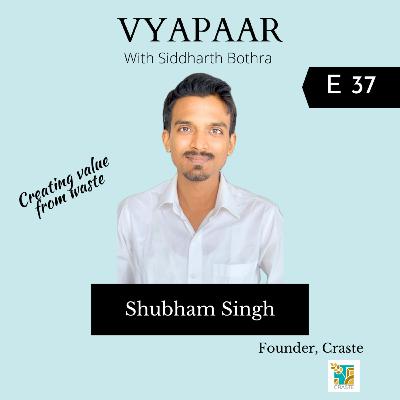

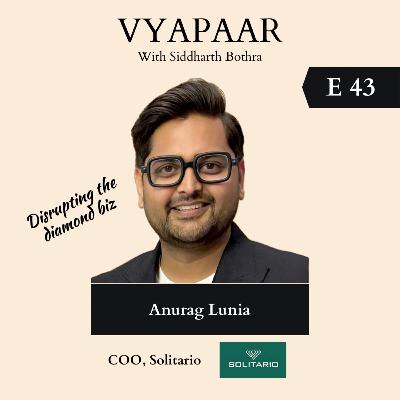
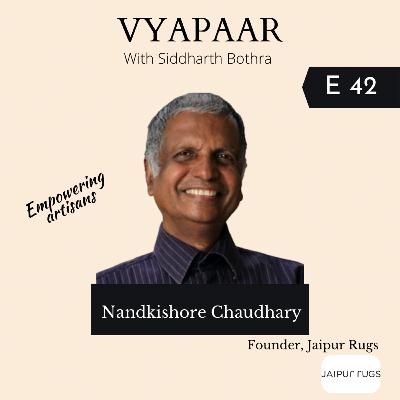

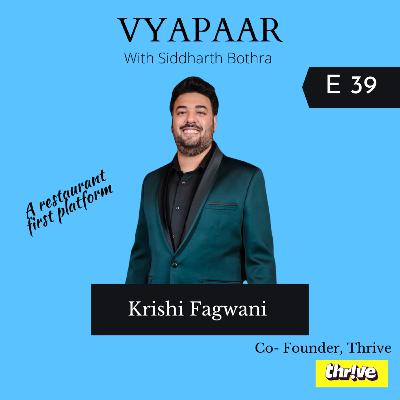
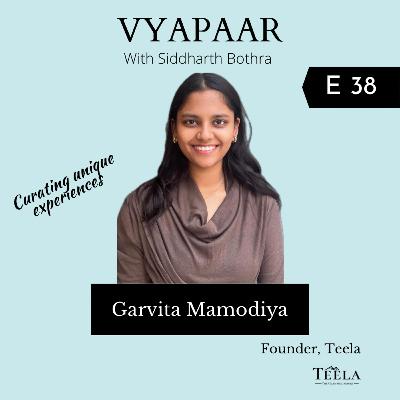
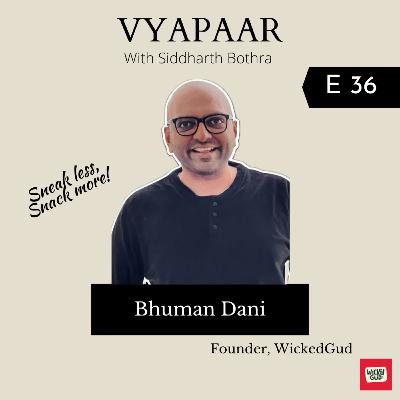
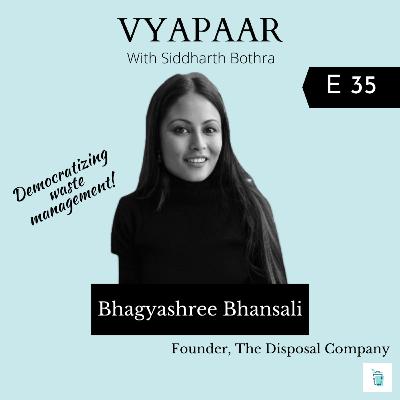
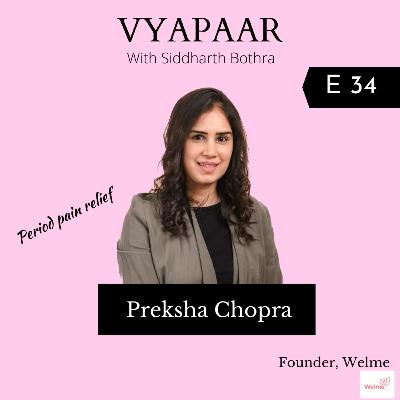
![EP33 [P2]: Crafting premium beverages w/Sober & Co's Sharan Kripalani EP33 [P2]: Crafting premium beverages w/Sober & Co's Sharan Kripalani](https://s3.castbox.fm/18/10/16/54a5e2b8047f42053f50057427be5fa167_scaled_v1_400.jpg)
![EP33 [P1]: Crafting premium beverages w/Sober & Co's Sharan Kripalani EP33 [P1]: Crafting premium beverages w/Sober & Co's Sharan Kripalani](https://s3.castbox.fm/ca/d9/d5/56c0a7e8d934628ee712ef24f872b4eff5_scaled_v1_400.jpg)

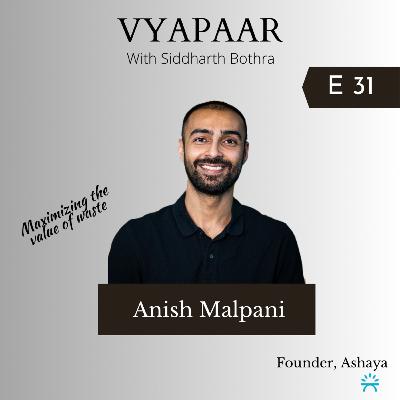
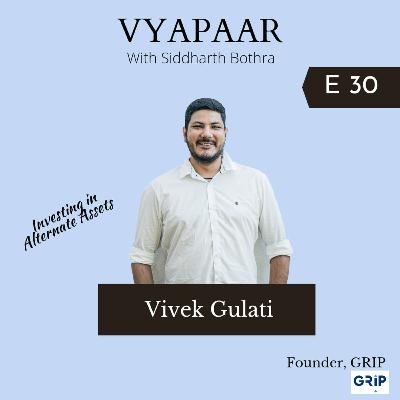

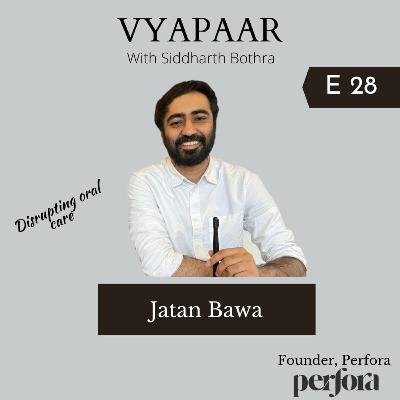
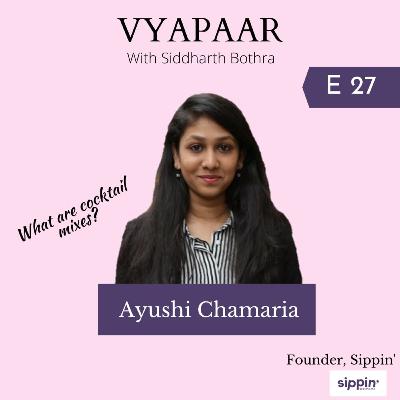
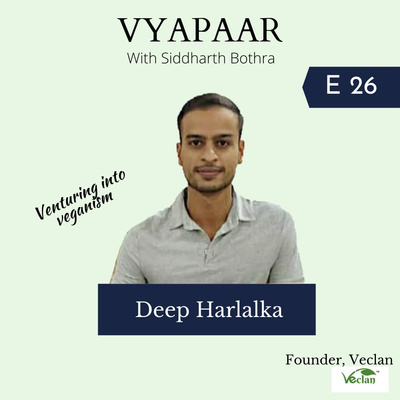
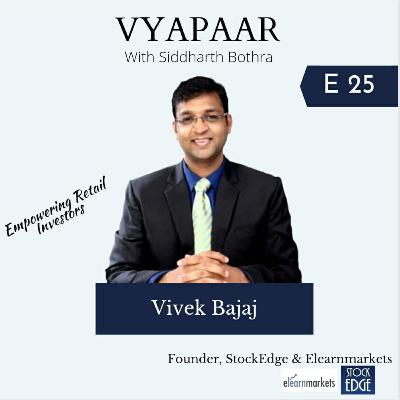



I just learned that mobile wallets and payments banking are not the same